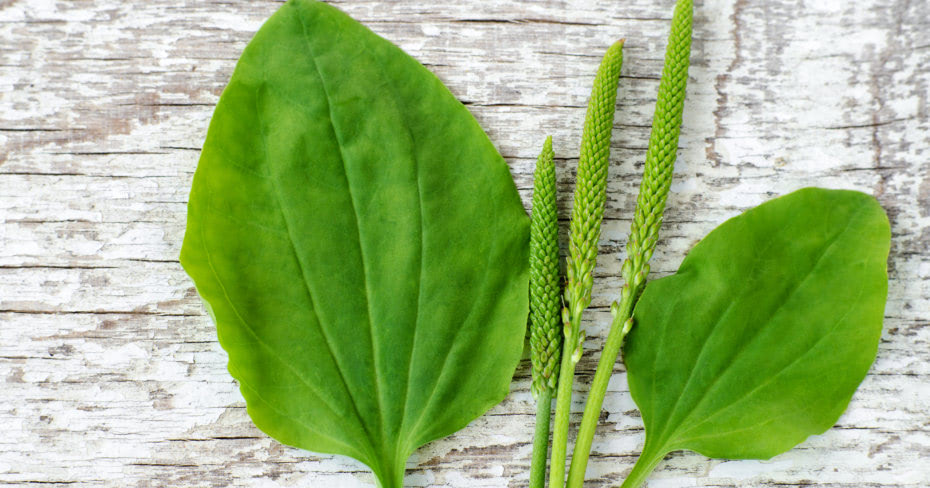Product Reviews
Psyllium Husk: Your Complete Guide
Because food is such effective medicine, there are very few supplements I actually recommend. But over the last 20+ years of working with patients, I find myself returning to a handful of products that work well with minimal side effects. Ground psyllium husk is one of those.
Psyllium is a form of water-soluble plant fiber with prebiotic effects that can help alleviate symptoms of many different digestive conditions by encouraging healthy bowel movements. Psyllium forms a viscous gel in the intestine to bulk the stool and move the products of digestion through in a timely fashion. You can think of psyllium like a broom that sweeps debris out of your colon and keeps things moving through efficiently.
Psyllium is most helpful for constipation, but it also works for conditions where incomplete evacuation can be a problem, including dysbiosis (gut bacteria imbalance), irritable bowel syndrome (particularly in constipation-predominant IBS), parasites (helps to remove parasite eggs and prevent them from taking root in the gut), and diverticulosis (bulks the stool and helps to achieve more complete evacuation).
Although psyllium is a safe and effective fiber supplement, here are two things to keep in mind:
- Digestive distress: Psyllium fiber can create bloating, gas, abdominal discomfort, cramping (and even diarrhea) due to the fact that it bulks the stool. That’s why it’s incredibly important to drink plenty of water with it. Most of these symptoms can be managed by starting with a lower dose of psyllium and increasing slowly as your body becomes acclimated to the additional fiber. Below you’ll find a step-by-step guide that explains this in more detail.
- Drug interactions: Psyllium has a binding effect and can impair absorption of other medications so it shouldn’t be taken within 2 hours of other medicines or supplements.
Psyllium should be combined with positive lifestyle changes, like a high-fiber, whole-food diet, regular exercise, plenty of water, and stress reduction. Daily use can be a healthy and effective way to increase fiber intake, relieve bloating and constipation, feed your healthy gut bugs, and curb your appetite in between meals.
How To Use
While psyllium husk powder is a great way to improve overall gut health, too large a dose at one time can clog up your bowels and worsen your symptoms. Choosing the correct dosage and drinking it with lots of water are key to prevent it from clumping in your gut and making you feel worse rather than better.
Here’s what I recommend, to start:
- Take 1 teaspoon of finely ground psyllium husk once a day in the morning, mixed with at least 8 ounces of liquid and followed by an additional 8-ounce glass of water. You may feel full and even more bloated the first few days, but after a week your body should be used to the increased fiber.
Then:
- After a week, add a second teaspoon in the middle of the day.
- After two weeks, add a third teaspoon at bedtime.
Be sure to follow each dose with an additional glass of water. You can add a little splash of juice or lemonade to the water for flavoring, but don’t use too much juice or it will be too thick. Also, you need to drink it briskly. If you sip it slowly, it tends to congeal and is hard to get down.
What brand of psyllium should you buy? The kind that tastes good enough that you’ll use it regularly. The psyllium husk I recommend is the kind my hard-core patients use – it’s pure ground psyllium husk without any flavoring or additives. The particles are a little bigger, it has a kind of birdseed consistency, and it doesn’t dissolve that well, but it has a very robust effect on the bowels. A more finely ground, smoother-texture, flavored psyllium is what a lot of other patients use. It dissolves more easily and tastes better, although I’m not a fan of the artificially sweetened versions or the kind with lots of other additives.
If you’re constipated and also trying to lose weight, a dose of ground psyllium husk three times a day will keep you full in between meals and is a healthy way to curb your appetite and treat your constipation at the same time.
If you are experiencing significant digestive distress, seek the advice of your healthcare practitioner before embarking on any new regimen, including adding psyllium husk to your routine.

